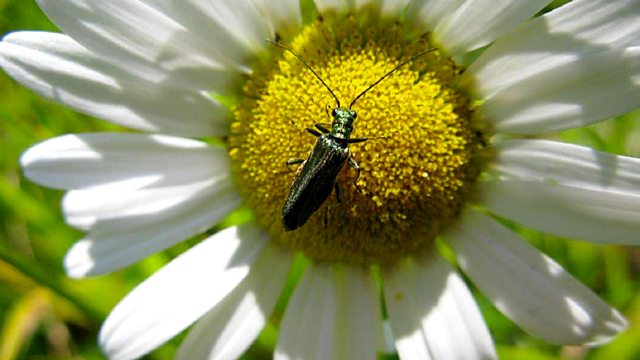Stone Curlew
Wiltshire's dry arableland is home to the stone curlew. For this weeks' Living World, Joanna Pinnock joins Nick Adams as dusk begins, as they search for this banshee of the night.
The stone curlew is one of the rarest birds in Britain. The historical change in agricultural practices across the country resulted in the decline of suitable habitat, such as grazed chalk grassland and fallow areas, which are the kinds of habitat most favoured by the stone-curlew for breeding. Subsequently, their numbers dwindled to an all time low in the mid-1980s of just a few dozen pairs in the Brecklands in East Anglia and the Wiltshire downs.
For this weeks' Living World, Joanna Pinnock travels to a remote part of Wiltshire to meet Nick Adams of the RSPB's Wessex Stone Curlew Project where she is keen to discover for herself the lifecycle of this strange almost prehistoric wader, with wide open beady yellow eyes and knobbly knees.
Secretive and difficult to see in the breeding season due to their nocturnal behaviour, in the autumn, stone curlews gather in roost flocks to prepare for their migration to Africa. So, after a wet autumnal day, as the light begins to fade, for this Living World, the pair listen and wait for the eerie calls of this summer migrant resonating around the equally strange and prehistoric landscape near Stonehenge. With increasing darkness, stone curlews begin to leave their daytime roost sites to forage and disperse over the landscape. In doing so Joanna and Nick become eager spectators to a cacophony of calls as birds fly from area to area, calls that in days gone by people likened to banshees of the night. All too soon darkness envelopes the pair, but pointedly this is Nick Adam's very last day on the project, and as the calling becomes more intense, are the birds saying goodbye to Nick for one last time?
Producer : Andrew Dawes


